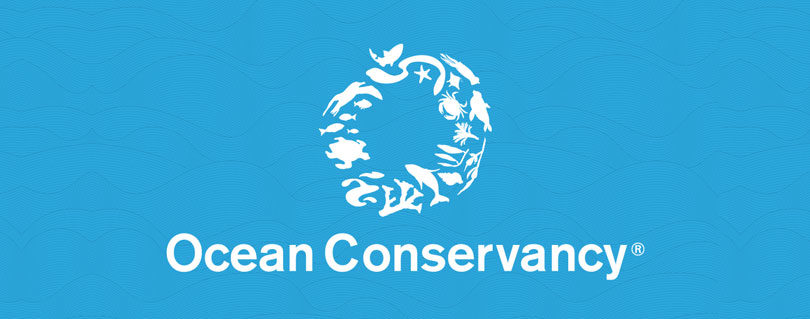Lessons Learned from a Gulf Coast Resident
Published by Ocean Conservancy
Galveston Beach, where the International Coastal Cleanup first began in 1986, is a 45-minute drive from my house. It’s not your typical vacation destination with crystal-clear water and sugar-white sand. Actually, the water here is distinctly brown, and the sand is, too. As a longtime resident of the Gulf, you learn to live with it—or learn to love it, as I did. From the very beginning, the ocean nurtured my understanding of the world and myself.
The ocean is my teacher.


The realization that there is so much more beyond the shore really opened the world to me. It taught me that there is more to what we first see on the surface. Take Galveston’s brownness, which many people I know have mixed feelings about. The water’s murkiness comes from huge amounts of sediment deposited into the waters, due to the nearby freshwater rivers flowing in. This sediment is what feeds the fish, shrimp and oysters and makes Galveston a productive fishing spot. The fact there are so many other creatures we share the world with is endlessly fascinating.
The ocean is my muse.


As a child I remember being obsessed with animals, and my way of studying these charismatic creatures was seeking out books and illustrations. It was as if by learning to draw them, I could really bring them into my immediate world.
Whether it was the shells of sea turtles or scales on fish, my endless interest in their patterns only inspired me even more to learn about their biological and ecological significance.
The ocean is a powerful force.


Wherever I go, the ocean has the ability to clear my mind and require absolute attention to my surroundings. Hot summer days spent splashing in the ocean’s bath and cool morning walks on the warm sand—these memories are so vivid that I can still feel them.
While the ocean can invoke calmness, it can also instill fear.


I learned early on that the ocean, in its largeness and with unpredictability, has the capability to engulf entire towns. From tropical storms to hurricanes, preparing for hurricane season each year has always been a normal part of life for those who live near the coast. I can remember several storms that forced my family to decide whether to evacuate or prepare for the worst.
Now there’s a new normal. Climate change plays a role in the frequency and intensity of natural disasters and makes the issue more complex in ways that we might struggle to understand, but need to accept and prepare for. Those on the frontlines feel the consequences directly, but even people not living near the coast, whether they know it or not, are affected by the ocean, too.


Coastal communities on the Gulf of Mexico have faced the consequences of not only devastating natural disasters, but man-made environmental disasters. Although the BP Deepwater Horizon oil disaster is the most well-known, there have been countless others which have seeped into the waters over decades, the effects of which still linger.
Despite these events which might make us feel hopeless, I see my community’s ability to recover, time and time again. My parents have relocated many times in their lifetime—with their most difficult choice being to leave their homes in Vietnam and start over in the United States. As Vietnamese who have become Americans, they are committed to stay through any storm that comes our way. We gather into one house, cook food for everyone with all that we have, and stick together until the winds and floods have gone. We help each other heal. We find our way back and rebuild. We do what needs to be done to prevent further damage. Many of us stay fiercely attached to our homes because sometimes it’s the only choice we have, and the worst thing we can do is abandon it. Hurricanes might uproot our houses, but we choose to recuperate from these destructive events and in turn, build fierce resilience.
This not only applies to coastal communities, but to everyone.
This planet we call home needs us. By not giving up on wherever we choose to call home, we develop an even stronger attachment to the land and water we live on.


The most important lesson I have learned is that when we put effort into healing our ocean, it gives back. Projects to restore the Gulf for the long term are just underway, and Ocean Conservancy is keeping a close eye to make sure the Gulf’s marine species and ecosystems—like fish, corals, sea turtles and dolphins—are included.
It only took a move to another city for me to realize that wherever I go, the health of Galveston Beach where I had grown up all my life is tied to my emotional state, as much as it is tied to the health and livelihood of my friends, family and all the coastal communities that depend on it. The Gulf, one corner of the much larger ocean—as my teacher, my muse, my home – is a place that I will always come back to.


Sign up for our emails!
The post Lessons Learned from a Gulf Coast Resident appeared first on Ocean Conservancy.
Read the full article at: https://oceanconservancy.org/blog/2018/12/28/lessons-learned-gulf-coast-resident/


